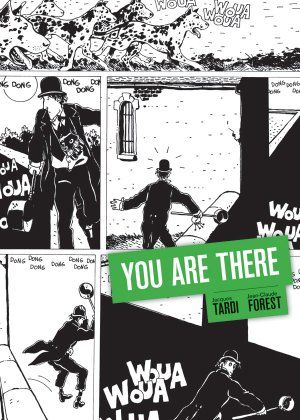Well, there goes one less potential column for Collect This Now. Over at Flog!, Fantagraphics co-publisher Kim Thompson announced the company will begin publishing the works of the legendary French cartoonist Jacques Tardi this summer:
"The first two releases will be West Coast Blues (Le petit bleu de la Côte Ouest), a hard-boiled crime thriller adapted by Tardi from the novel by Jean-Patrick Manchette, and You Are There (Ici même), a satirical, surreal story written for Tardi by Barbarella creator Jean-Claude Forest that many consider one of the first true French graphic novels. Both will be released simultaneously in August, in what series editor Kim Thompson (ahem) calls a ‘double-pronged shock-and-awe assault on the American readership, to immediately show off Tardi's versatility.'
The real gem comes next summer when the company plans to publish what is largely regarded as his masterstroke, the WWI epic, In the War of the Trenches.
Very little of Tardi has been released in the U.S. over the years. Raw, Dark Horse, NBM and Drawn and Quarterly have all made stabs at translating his work, only to meet with little to no success. One hopes this latest attempt fares much better.
Both Heidi MacDonald and Tom Spurgeon have more detailed stories about the announcement, with the latter featuring an extensive interview with Thompson:
SPURGEON: Can you describe Tardi's place in his own culture's comics firmament? I have a better sense of how several artists are seen over how Tardi is seen. What is admired about his work in Europe? How is he viewed by the subsequent generations of talented cartoonists?
THOMPSON: I think it's safe to say that Tardi is considered one of the grandmasters of his generation, someone of such commanding skill and breadth of achievement that he's sui generis. I'd almost have to go outside the world of comics and say he's maybe like the Martin Scorsese of European comics. He not only draws beautifully but draws with tremendous effectiveness as a cartoonist, which is a rare combination -- his work is beautiful but not necessarily pretty. Many cartoonists who draw what I'll call "realistically" as opposed to "cartoony" lose the punch and efficacy of the best "funny" cartooning, but he manages to combine the best of both.
I'm pretty sure Tardi is as revered by later generations of European cartoonists in the same way that Crumb is revered by American cartoonists.


